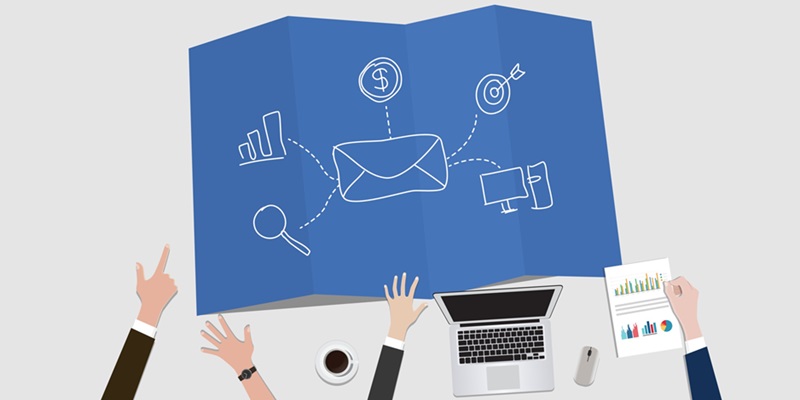In today’s digital age, email marketing has emerged as a cornerstone of communication strategies for businesses. With its unparalleled reach and effectiveness, email marketing allows businesses to directly communicate with their customers, delivering personalized messages and driving engagement.
Benefits of Email Marketing for Businesses
Email marketing provides a direct line of communication between businesses and their customers. By sending targeted and personalized messages, businesses can build stronger relationships with their audience and increase customer loyalty.
Cost-Effectiveness Compared to Other Marketing Channels
One of the major advantages of email marketing is its cost-effectiveness. Compared to traditional marketing channels, such as print or television advertisements, email marketing requires minimal investment while offering high returns on investment (ROI).
Versatility in Terms of Content and Campaigns
Email marketing offers incredible versatility when it comes to content and campaigns. With email, businesses can send a wide range of content types, including newsletters, promotional offers, event invitations, and educational content. This versatility allows businesses to cater to different audiences and achieve various marketing goals.
Measurable Results for Tracking Campaign Performance
Unlike traditional marketing methods, email marketing provides measurable results that help businesses track the success of their campaigns. Through comprehensive metrics, businesses can monitor open rates, click-through rates, conversion rates, and other key performance indicators (KPIs) to refine their strategies and optimize future campaigns.
Improved Brand Presence and Customer Engagement
Through consistent and targeted email marketing campaigns, businesses can enhance their brand presence and increase customer engagement. Regularly connecting with customers through email helps to establish brand recall and loyalty, fostering long-term relationships.
Evolution of the Email Marketing Landscape
The landscape of email marketing has undergone a remarkable evolution, driven by technological advancements and changing consumer behavior. To stay ahead of the curve, businesses must adapt their email marketing strategies to align with these changes.
Shift Towards Automation for Efficient and Personalized Campaigns
Automation has revolutionized email marketing by streamlining processes and enabling businesses to send targeted, timely, and personalized messages to their subscribers. By leveraging automation tools, businesses can set up email flows, trigger campaigns based on user actions, and deliver dynamic content, resulting in higher engagement and conversion rates.
Integration of AI and Machine Learning for Enhanced Targeting and Insights
Artificial Intelligence (AI) and machine learning play vital roles in optimizing email marketing strategies. AI-powered algorithms can analyze vast amounts of data to identify patterns and predict user behavior, allowing businesses to segment their audiences more effectively and personalize their campaigns for maximum impact.
Importance of Responsive Design and Mobile Optimization
With the proliferation of mobile devices, it is crucial for businesses to ensure that their emails are mobile-friendly. Responsive design and mobile optimization enable emails to adapt seamlessly to different screen sizes, ensuring a consistent and user-friendly experience across devices.
Compliance with Data Protection Regulations
In an era of heightened data privacy concerns, businesses must ensure that their email marketing practices comply with data protection regulations, such as the General Data Protection Regulation (GDPR). Respecting users’ privacy and obtaining explicit consent before sending emails is essential to maintain trust and avoid legal issues.
Segmentation Tools in Email Marketing
Segmentation tools enable marketers to divide their subscriber lists into smaller, more targeted segments based on various criteria. By segmenting subscribers based on demographics, interests, purchase history, or engagement levels, businesses can deliver highly relevant content that resonates with their audience, increasing the chances of conversion and customer satisfaction.
Content Enhancement Tools in Email Marketing
To improve the quality, engagement, and effectiveness of email campaigns, marketers can utilize content enhancement tools driven by AI. These tools help create compelling subject lines, generate personalized product recommendations, optimize email layouts, and enhance visual design elements – all aimed at grabbing the subscriber’s attention and driving better campaign performance.
Automation and Workflow Optimization Tools in Email Marketing
Automation and workflow optimization tools streamline processes, creating targeted campaigns and maximizing efficiency through AI-powered automation. These tools allow businesses to trigger emails based on specific user actions or predetermined time intervals, saving time and effort and maintaining consistent communication with subscribers.
Personalization Tools in Email Marketing
Personalization is a crucial aspect of successful email marketing. Personalization tools tailor messages to individual recipients based on data and user behavior, using behavioral targeting and hyper-personalization techniques. By delivering personalized content and recommendations, businesses can significantly increase engagement and conversions.
Analytics Tools in Email MMarketing
Analytics tools provide valuable insights into campaign performance and user engagement. By analyzing comprehensive metrics, conducting A/B tests, and utilizing real-time reporting, businesses can monitor the effectiveness of their email marketing efforts, identify areas for improvement, and make data-driven decisions for future campaigns.
Ensuring Success with Email Marketing Tools
To ensure success, brands should assess the suitability of email marketing tools for their specific needs. It is essential to choose robust and user-friendly tools that integrate seamlessly with existing marketing strategies. Additionally, monitoring effectiveness through defined KPIs will enable businesses to measure their progress, make necessary adjustments, and continuously improve their email marketing efforts.
Email marketing continues to be a vital component of digital communication strategies, offering businesses direct communication, cost-effectiveness, versatility, measurable results, and improved brand presence. As the landscape of email marketing evolves, businesses must embrace key trends such as automation, AI integration, responsive design, and compliance with data protection regulations. By leveraging segmentation, content enhancement, automation, personalization, and analytics tools, businesses can create impactful email campaigns, optimize their strategies, and achieve remarkable success in engaging and connecting with their audience.

